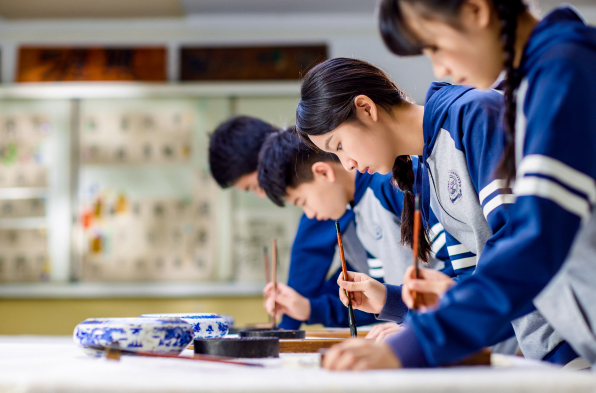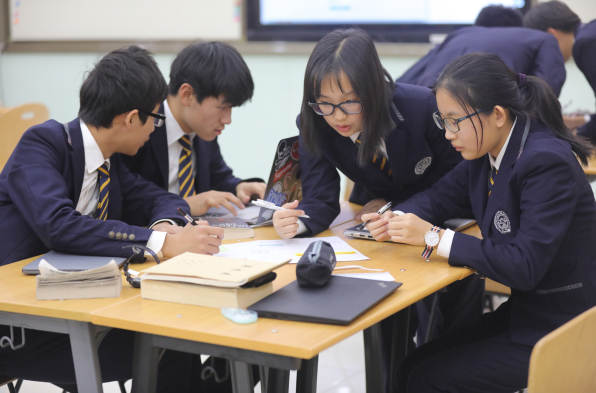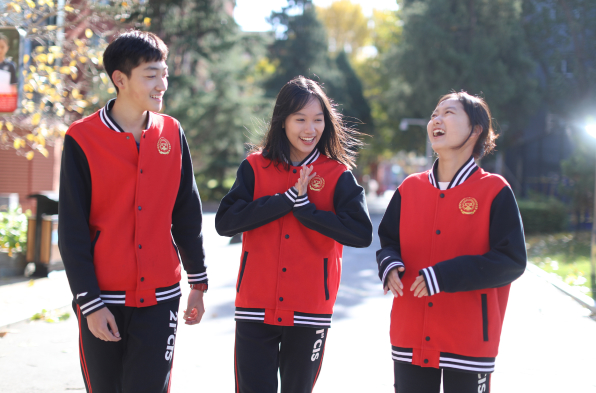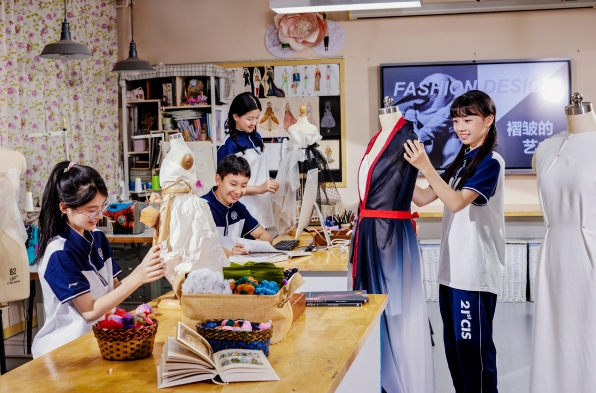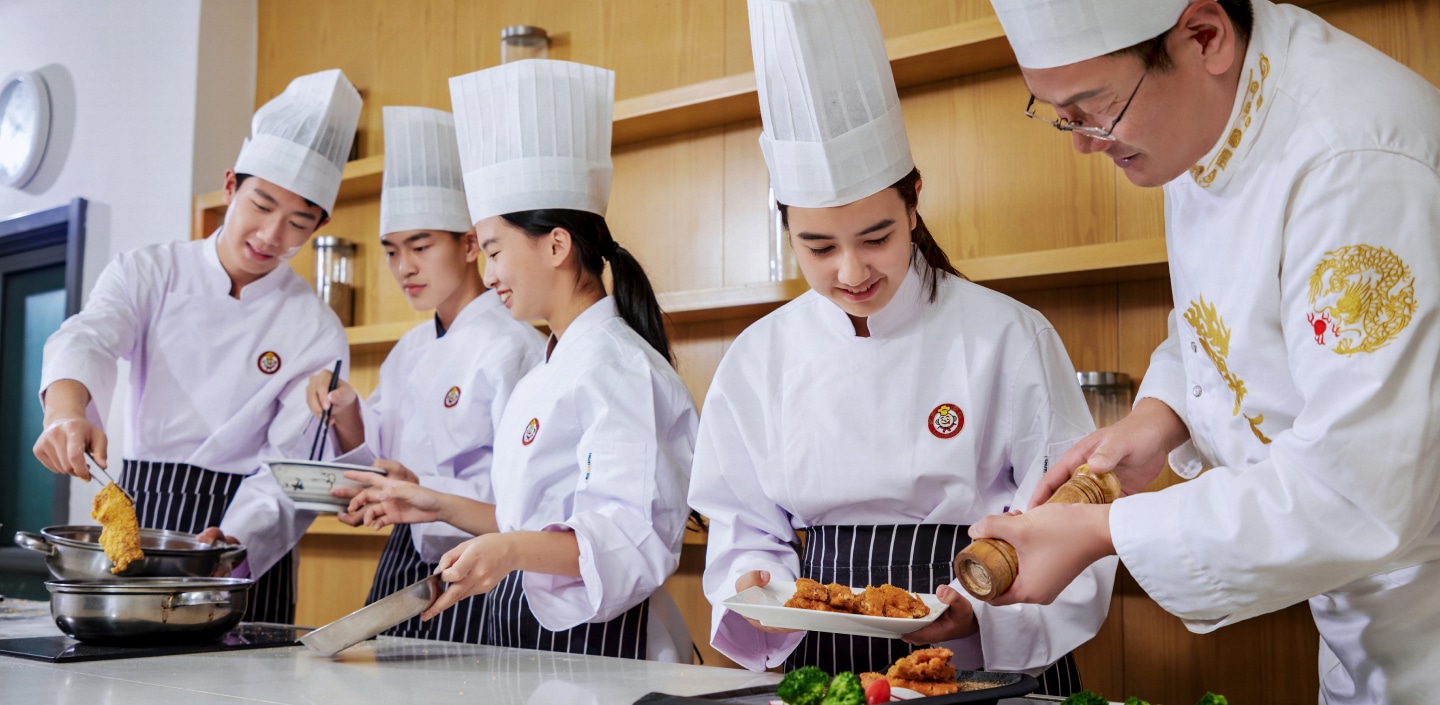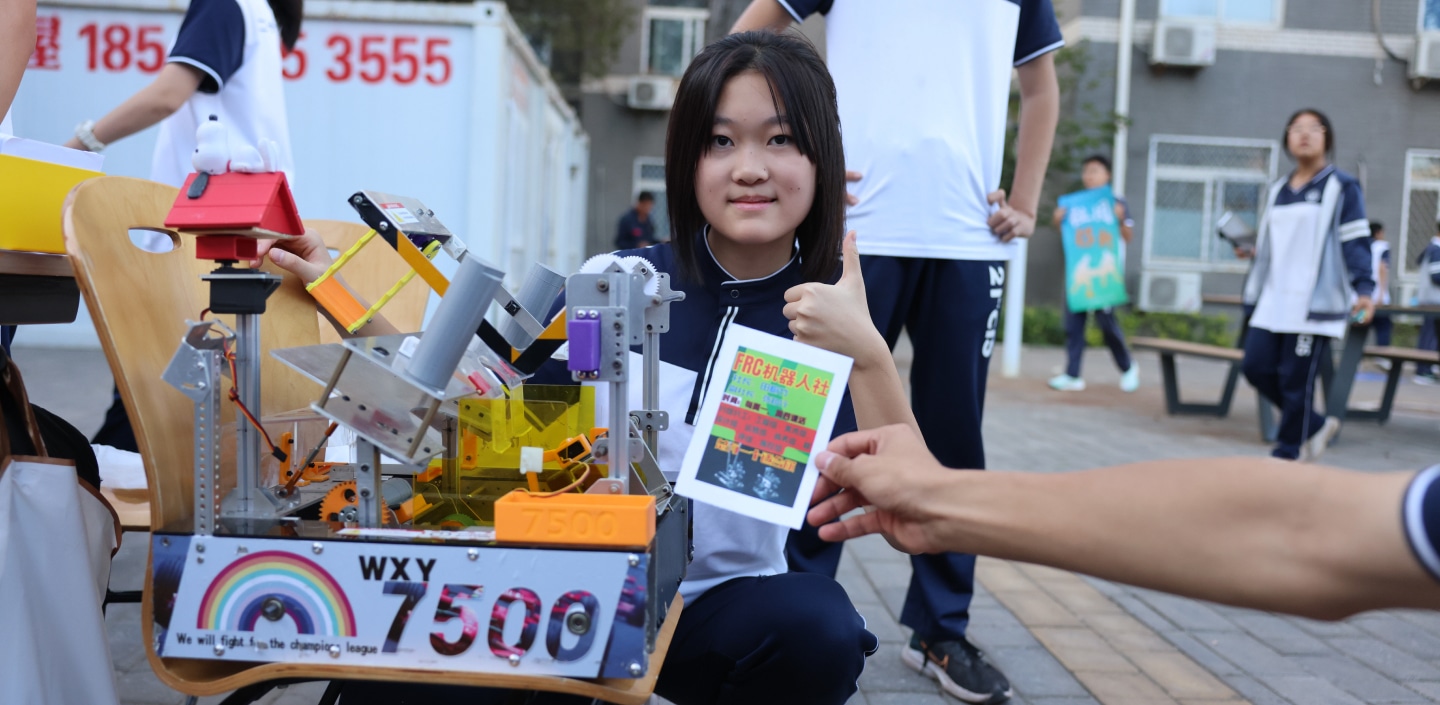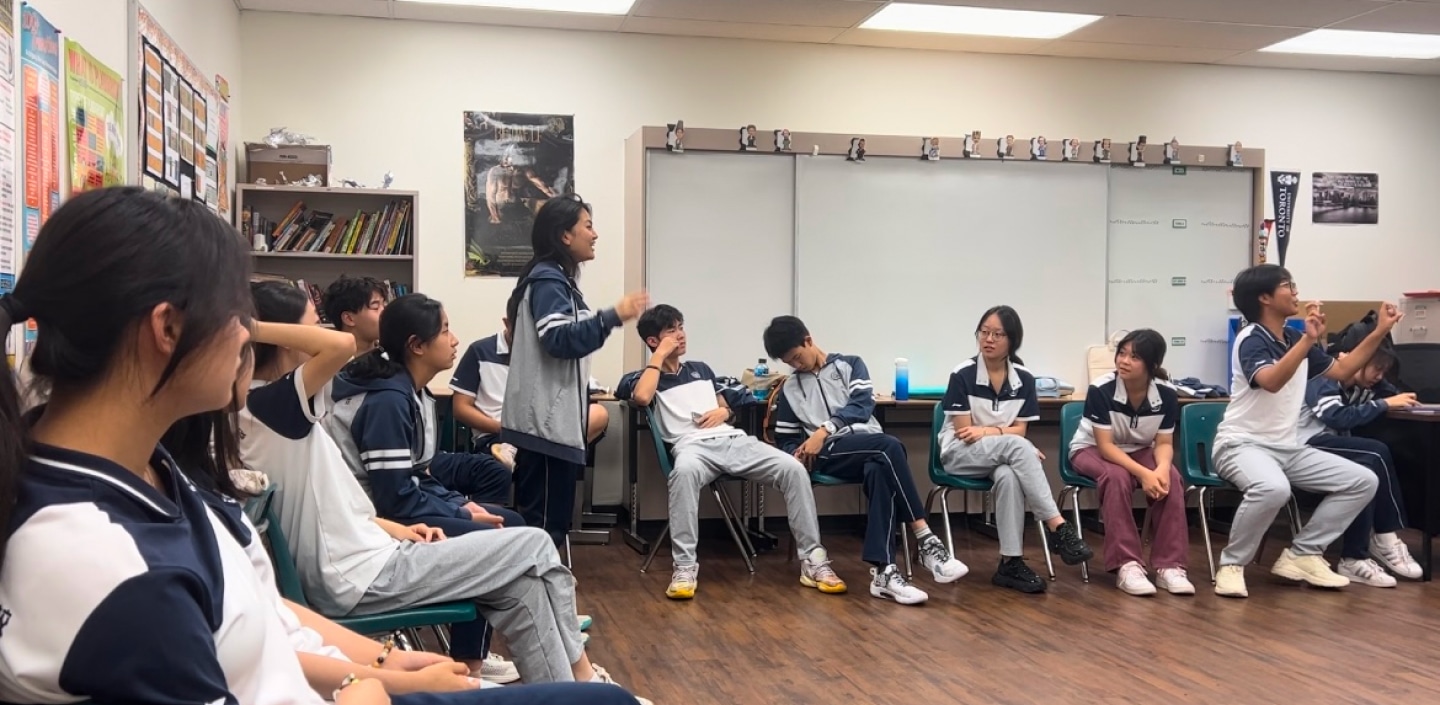Junior High School - Focusing on Individual Development,
Letting Every Child Shine
The junior high school section is committed to stimulating students' initiative, enthusiasm, and creativity,
creating an educational environment suitable for the development of each student.
To meet the personalized growth needs of students, we fully implement the elective class system, emphasizing the advantages of Chinese basic education in teaching to ensure that students consistently perform well in the district's entrance examinations. The junior high school section has established a scientifically effective management system for the elective class system, adopting the most advanced flat management model. It divides each academic year into project groups, with mechanisms such as education consultant management, mentorship management, routine management, self-planning management, process evaluation management, self-study management, life service management, and autonomous management academies. Combining the teaching organization form of elective classes, every teacher becomes an equal mentor and consultant to students, truly achieving personalized education.
-
Fully implementing the elective class system brings about an immersive learning atmosphere.
-
The curriculum offers rich and diverse modules, including compulsory, elective, and comprehensive practical courses, providing children with the engine for independent development.
-
Offering diverse bilingual and comprehensive quality classes, accommodating the growth needs of children, and tailoring personalized services accordingly.
-
Collaborative education between home and school, providing companionship and guidance, and establishing a holistic education system.
-
Discovering individual interests and supporting the germination of dreams.
-
The platform of autonomous management academies allows everyone the opportunity to become a leader.
Curriculum Features
Focusing on "Elective Class System"
-
01
Tailored Instruction, Each Student Has a Personalized Schedule
The elective class system means that subjects and teachers are fixed, while students can choose courses of different types and levels based on their grades, interests, and abilities. This allows students to focus more on personalized needs, combine with their future development direction, and learn the art of making choices. Teaching becomes more targeted, addressing the problem of students feeling "unsatisfied" or "not well-fed" in their learning.
-
02
Flexible Methods, Autonomous Learning Abilities are Enhanced
The essence of the elective class system is to empower students, as there are no fixed class groups. Therefore, students need to manage their studies and activities independently on campus and cannot rely entirely on others. Starting from course selection, students need to think and decide independently, determine their future direction, and continue to work hard. This cultivates independence, autonomy, time management skills, and forward planning.
-
03
Parallel Implementation of the Mentorship System, Providing One-on-One Detailed Services
Considering that students are young and their interests are unstable, and there may be blind course selection and planning, to ensure the quality of students' learning, the school assigns each student with two mentors. These mentors serve as the students' dedicated agents throughout the three years. Five finely detailed services under the mentorship system: routine management, emotional support, academic guidance, career planning, and communication between home and school, safeguarding and accompanying the child every day.
-
04
Expanding Social Circles, Finding Like-Minded Companions for Children
The elective class system breaks the traditional boundaries of classes and grades, allowing students of different ages to integrate. This expands students' social circles, where they make friends based on common interests, facilitating communication, collaboration, deepening friendships, nurturing a sense of community, and enhancing professional capabilities.
-
05
Creating Professional Classrooms, Fostering a Rich Learning Atmosphere
The school has established over 50 professional classrooms, providing students with more professional learning environments to fully meet the personalized development needs of different students, ensuring that each classroom has its own unique culture.


Interpretation
-
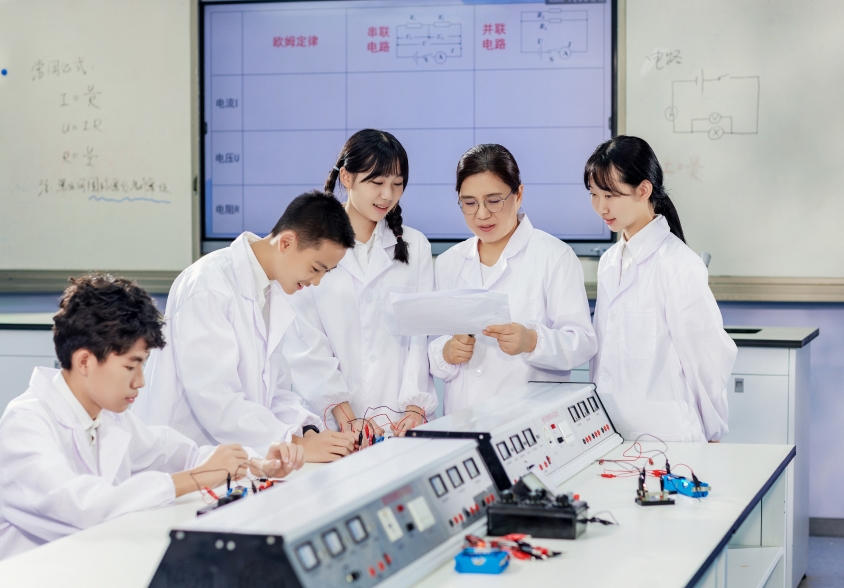
What is the elective class system?
What is the elective class system?
The elective class system organizes school classrooms based on subject areas. For instance, there are dedicated classrooms for subjects like Chinese language and mathematics. When students attend classes, they move between different subject classrooms based on the courses they have chosen.
-

When does course selection take place?
When does course selection take place?
Course selection usually occurs at the end of the previous semester or before the start of a new semester. With guidance from course selection advisors, students receive training on course planning and platform operations. Then, they go through four stages: simulation selection (understanding course intentions and testing the selection platform), formal selection (choosing required courses, categorized courses, and elective courses), supplementary selection/withdrawal (re-selecting courses that were closed, withdrawing inappropriate courses, selecting missed courses, adjusting special needs courses), and daytime self-study and physical activity selection (choosing physical activity times and self-study classrooms).
-
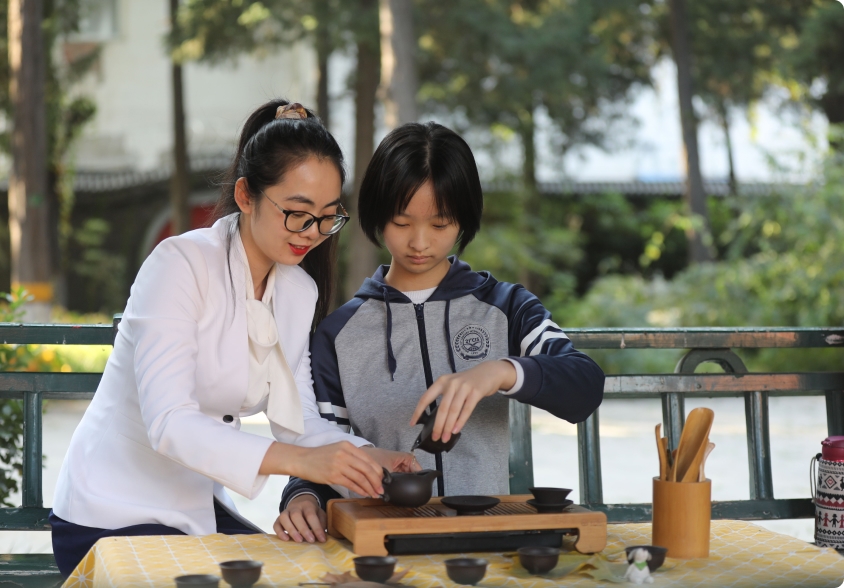
What are "Period Mandatory" and "Category Mandatory"?
What are "Period Mandatory" and "Category Mandatory"?
"Mandatory courses" are required for all students. "Period Mandatory" courses have fixed content but flexible study periods, like middle school history or biology. "Category Mandatory" courses require students to choose one course from each category every semester, such as art or physical education, with freedom in specific course selection. Students can refer to the course guides for each subject when making their choices.
Curriculum Design
Junior high school is an important stage bridging elementary and high school. The school department provides students with a rich variety of courses, divided into three main categories: compulsory, elective, and comprehensive practice, totaling over a hundred teaching modules. The rich and multi-layered curriculum design empowers students with the right to choose courses, difficulty levels, study times, learning methods, and development interests. While studying academic subjects, students are encouraged to cultivate their interests and specialties, broaden their professional horizons, drive internal motivation for learning, activate potential development, and create personalized education suitable for each child.
-
Chinese Language
Students are holistically trained in listening, speaking, reading, and writing. Systematic textbooks include the "Classic Reading Project" for mandatory and optional readings, the "Group Reading" series for reading and writing, the "Language Silk" series for daily compositions, and the "Century Orator Course" for speech skills.
-
Mathematics
Implementing differentiated teaching to tailor personalized packages for each student. Evaluation methods like "Math Checklists" effectively assess daily learning outcomes, helping students better absorb the teaching content.
-
English
Immersive teaching based on communication. The curriculum includes both basic English and original text reading courses, supplemented by three upgraded courses: EG Grammar, ER Reading, and ESL Listening and Speaking. These courses combine Eastern and Western teaching methods, supported by excellent language textbooks and school-based materials.
-
Elective Courses
Divided into four major categories: arts, technology, physical education, and labor skills, offering over twenty elective courses such as drama, dance, piano, pop music, oil painting, Chinese painting, calligraphy, fashion design, film and television directing, photography, animation, aviation modeling, robotics, cooking, art and life, and labor skills.
Class Type Settings
-


Multilingual Class
Small class teaching, offering courses for the junior high school entrance examination, bilingual courses, and intensive English courses taught by foreign teachers. This strengthens students' English foundation and enhances their English proficiency, laying a solid foundation for their enrollment in international high schools, adaptation to fully English-speaking environments, and smooth entry into top international schools.
-


Comprehensive Quality Class
Small class teaching, offering domestic advanced courses for the junior high school entrance examination and IP English courses to solidify the foundation. Tailored teaching methods are employed to cultivate students' learning abilities and methods, focusing on improving their application of knowledge. This approach aims to cultivate students' good study habits, self-management skills, and independent learning abilities, achieving a dual enhancement of improved scores in the junior high school entrance examination and accumulation of overseas study abilities.
-
Elective Courses
Space for Comprehensive Exploration and Personalized Choices
-
Parent-School Communication
Establishing a New Interactive Platform for Communication among Teachers, Students, and Parents, Achieving Integrated Education between Home and School
-
Student Activities
Exploring Talents Through Joyful Practices
-
Autonomous Management College
Developing Skills and Interests Through Practice, Growing into Critical and Analytical Leaders













